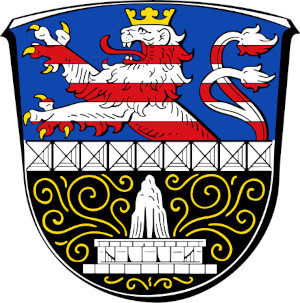
Where Ideas Meet: The Future of Lung Research in Hessen
The Hessen Lung Academy is a student-focused initiative that brings together young scientists and researchers from across Hessen, all engaged in advancing the field of lung research. Our mission is to create a vibrant, interdisciplinary network that fosters scientific exchange, skill development, and professional growth. We organize a wide range of activities, including workshops, lectures, seminars, and networking events, designed to equip students with cutting-edge knowledge and practical skills while promoting collaboration across institutions.
By bringing together students and early-career researchers from universities, research institutes, and clinical centers, the Hessen Lung Academy acts as a bridge between diverse disciplines and research environments. We encourage participants to share ideas, explore new collaborations, and build lasting professional relationships that can drive innovation in lung research.
Whether you are pursuing a degree in biomedical sciences, clinical medicine, molecular biology, bioengineering, or a related field, the Hessen Lung Academy offers you a unique platform to grow, connect, and contribute to the future of lung health research.
Our activities include:
Whether you are just beginning your academic journey or already involved in a lung-focused research project, the Hessen Lung Academy offers a vibrant and supportive environment to grow, connect, and contribute to the future of lung science.
Join us in shaping a stronger, more connected lung research community in Hessen!



In the ILH, special emphasis is given to the training, support and career development of junior scientists in lung biology and pulmonary medicine. To this end, ILH liaises with pre-existent expertise at the Biomedical Research Campus of the JLU, within the DZL and within the Excellence Cluster Cardio-Pulmonary Institute (CPI). At the JLU, the Graduate School “Molecular Biology and Medicine of the Lung” (MBML) has been set up 16 years ago, with > 300 PhD or MD-PhD doctoral fellows trained up to date: notably, more than 70% of the alumni of this Graduate School have pursued a scientific career after terminating the program. Moreover, the MBML is closely linked to the DZL Academy and the CPI Academy. Current plans in the vibrant educational environment include:
These additional activities will complement the current levels of educational outreach of the ILH:
In the first round 2022, the following grants were provided:
Start-up Grants:
Postdoc Grants:
In the second round 2024, the following grants were provided:
Start-up Grants:
Postdoc Grants:

The international graduate program “Molecular Biology and Medicine of the Lung” (MBML) was established in 2002 and is the flagship program of the Universities of Giessen and Marburg Lung Center (UGMLC). It is currently led by ILH Professor Elie El Agha under the chairmanship of ILH Founding Director Professor Werner Seeger. The MBML trains doctoral students from various disciplines on various aspects of lung anatomy, biology, physiology, and pathophysiology with strong focus on state-of-the-art technologies and their use in translational lung research. Enrolled students are required to pass three written examinations throughout the two-year coursework and attend three Annual Retreats to successfully graduate from the MBML. The Annual Retreat takes place in Rauischholzhausen Castle, and the attendees consist of up to ten keynote speakers who are leading experts in cardiopulmonary biology or medicine, some of which are Nobel Laureates, in addition to the faculty, student body, DZL Academy fellows representing all DZL sites and affiliated partners, and other invited guests. The keynote lectures are interspersed with lectures by all three generations of enrolled graduate students, who report on the progress of their dissertation projects.

Typical attendance of an MBML Annual Retreat (Group photo at the 17th MBML Annual Retreat between 3-5 July 2019).
To date, 291 students (54% females, 46% males, and less than 1% diverse) from 51 countries have enrolled in the MBML, one third of which being from Germany and the rest from Europe, Asia, Africa, North America, and South America. Around 77% of enrolled candidates come from natural sciences and around 20% from medicine, with the rest being from veterinary medicine and pharmacy.

The MBML alumni pool includes multiple current faculty and adjunct faculty members of the ILH in addition to other external members who went on to assume leading roles at other institutes in Germany or worldwide. Around 52% of MBML alumni stay in academia, 33% join the industry, 10% continue as clinician scientists, and 5% as clinicians.

We invite all students, doctoral candidates and early postdocs (up to 8 years post-PhD or MD) of the various DZL principal investigator laboratory groups to become a Fellow of the DZL Academy. The 8 year postdoc cut-off for membership in the DZL Academy will be extended for time taken as parental leave or time taken off work to care for family members.
DataLung is a joint venture between the DZL Academy and the Artificial Intelligence and Digital Tools disease-spanning working group. It is set up as an umbrella organization around existing PhD schools across the DZL sites. DZL members can apply to join DataLung to work towards completing a certificate in data science for pulmonary research.
